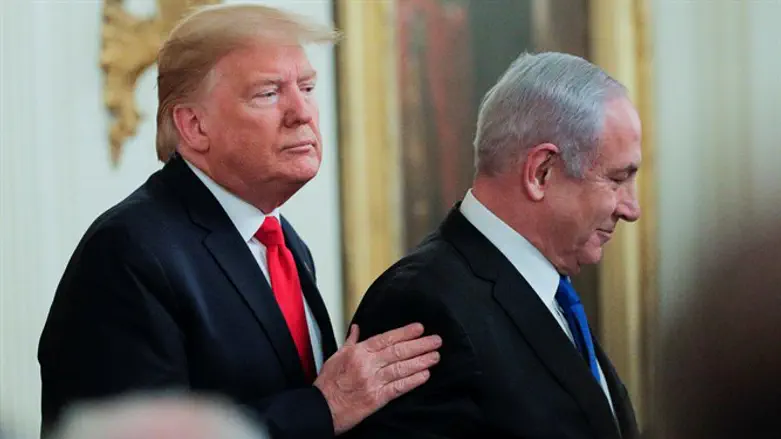
Some members of the Trump administration are growing increasingly frustrated with criticism of the administration’s Middle East peace plan by elements of the Israeli Right, according to a report by Israel Hayom Tuesday.
This January, President Donald Trump unveiled the much-anticipated peace plan, which was quickly endorsed by Israeli Prime Minister Binyamin Netanyahu.
The plan, which calls for final status negotiations between Israel and the Palestinian Authority leading to the establishment of a Palestinian state, obliges Israel to leave the door open to talks and refrain from establishing new towns or expanding existing ones in roughly 70% of Judea and Samaria.
However, the plan also provides for American recognition of Israeli sovereignty over some 30% of Judea and Samaria, including the Jordan Valley, Dead Sea coast, and all Israeli towns in Judea and Samaria.
While the Israeli Right lauded the plan’s provision for the application of Israeli sovereignty over parts of Judea and Samaria, the plan as a whole has divided Israeli nationalists, with the Yesha Council, which represents Israelis living in Judea and Samaria, pressing the administration to drop the requirement for Palestinian statehood – and lobbying the Israeli government to ignore this provision of the peace plan.
American officials involved in the peace plan and its implementation have bristled at Israeli objections to the plan, Israel Hayom reported Tuesday, quoting a US official familiar with the details.
“If the settlers don't want what the administration currently has to offer,” the official told Israel Hayom, “they shouldn't come to us in the future.”
The official went on to remind Israeli critics of the peace plan of the behavior of the Trump administration’s predecessor vis-à-vis Israel, citing the Obama administration’s decision to permit the United Nations Security Council to pass Resolution 2334, which condemned Israeli towns in Judea, Samaria, and eastern Jerusalem as ‘illegal settlements’.
“The expectation was that they see the bigger picture, remember where they were standing in December 2016, and that they consider where they could be standing four years from now if the Palestinians continue to reject negotiations with Israel."
